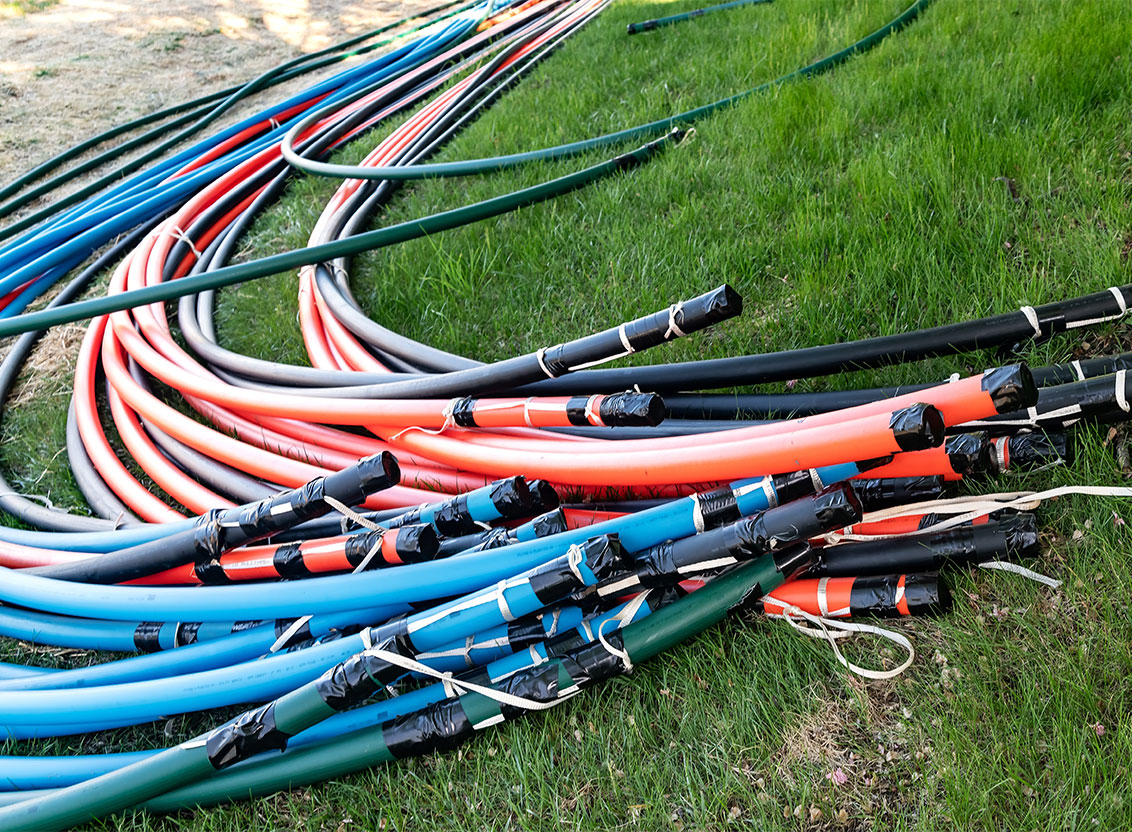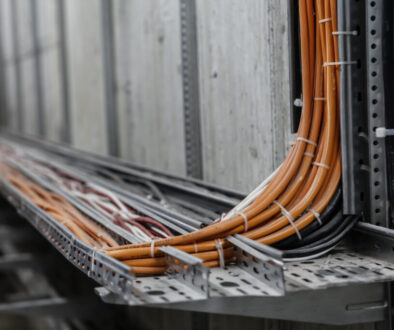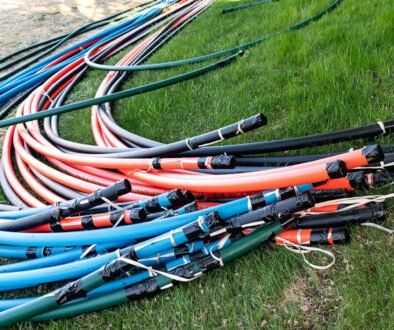
Choosing the Right Communication Cable Conduit for Your Network Needs
The reliability and longevity of any communication network hinges on something often overlooked: the conduit that houses your cables. Whether you’re installing municipal fiber optics, running broadband infrastructure across potentially challenging terrain, or setting up communication lines in a commercial complex, the right conduit is critical to ensure smooth installation and long-term network reliability.
At Allwire, we understand that the performance of your communication network starts with what’s beneath the surface. As one of the industry’s leading cable-in-conduit (CIC) providers, we’ve helped clients across the country navigate the complexities of cable conduit selection, providing conduit solutions that balance durability, efficiency, and long-term cost savings.
Reliable Communications Infrastructure Requires the Right Choice in Cable Conduit
Conduit protects your communication cables from environmental, mechanical, and chemical damage. A well-chosen conduit will thus extend the life of your network infrastructure, reduce maintenance costs, and minimize the risk of service disruptions.
However, not all conduits are created equal. Selecting the wrong type can lead to premature failure, increased downtime, and costly replacements. That’s why Allwire is always standing by to provide customers with expert advice regarding their specific installation needs.
Key Factors to Consider for Choosing Communication Cable Conduit:
What Are the Environment / Installation Conditions?
Is your project in an urban area with tight bends and high congestion, or in a rural zone with wide-open directional drilling? Environmental factors such as soil composition, temperature extremes, moisture levels, and UV exposure directly impact conduit performance.
For underground/buried communication cables, HDPE (high-density polyethylene) conduit offers exceptional flexibility and resistance to corrosion and chemicals. We routinely supply HDPE cable-in-conduit solutions designed to withstand even the most challenging environments.
What Is Your Required Cable Type and Count?
Are you installing fiber optic communication cables, coaxial, or hybrid bundles? Will you be pulling additional cables later? These are all crucial questions to ask up front to ensure you’re using the optimum conduit material to meet your current needs, as well as your future requirements if you plan to expand/upgrade your network.
Allwire’s engineers can help you size your conduit properly and recommend pre-lubricated options to reduce friction and cable stress. With decades of experience manufacturing and installing CIC, we can guide you on fill ratios and future-proofing your conduit plan.
What Is Your Required Conduit Diameter and Wall Thickness?
Smaller conduits may be cost-effective upfront, but choosing too narrow of a diameter can cause problems during cable pulls or upgrades. Obviously wall thickness also significantly affects strength and flexibility, so both attributes are crucial to get right.
Typically, pipe diameter and wall thickness are designated by a SDR (standard dimension ratio). Allwire provides a wide range of conduit SDR options to meet your specific requirements in cable type, count, diameter, etc.
Which Installation Method Will You Utilize?
Is your conduit going to be trenched, plowed, bored, or pulled? Each installation technique places different stresses on conduit materials. You need to choose a material that is both durable and flexible enough for your chosen installation process to prevent conduit damage, as well as to keep installation simple and straightforward.
Allwire provides optimal conduit systems engineered for all common installation methods including horizontal boring/directional drilling, open trench, and aerial applications. Let our team help you match conduit specifications with installation requirements to avoid costly mistakes.
EMT (Electrical Metal Tubing) and Rigid Metal Conduit
These high-strength metallic conduit materials are ideal for harsh industrial environments where fire resistance, security, and physical protection are paramount. Metal conduits offer unmatched shielding and crush resistance for fiber optic cables, at the expense of flexibility and ease-of-installation. EMT and rigid metal tubing conduit is therefore typically reserved for specialized data center applications, high-security installations, and fiber optics installed within factories or industrial plants.
Optimized Communication Cable Conduit Solutions for Your Project
Allwire is your ongoing partner in infrastructure success. From material consultation to fulfillment and future logistics, we bring unmatched expertise to every project. Our focus on quality, customization, and customer service has made Allwire the trusted name in cable conduit systems for over 30 years.
Get in touch to discuss the conduit material options available for your specific communication cable needs.




